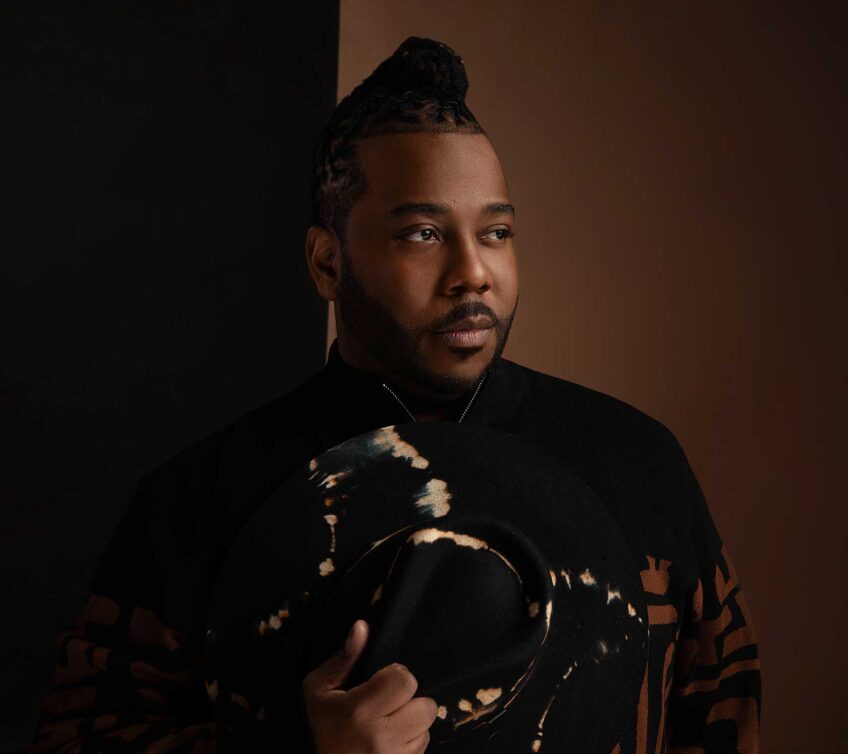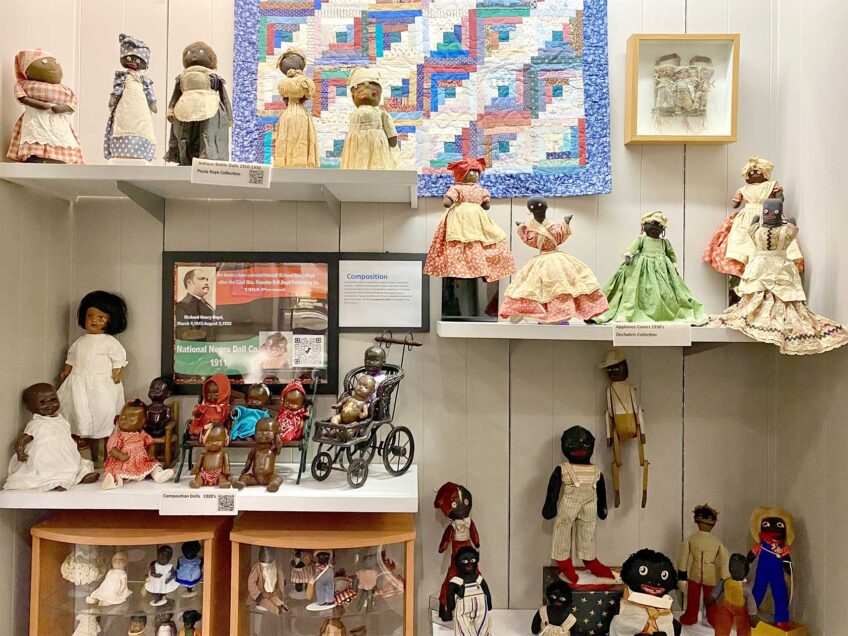The grammy nominated singer and song writer talks about the creative process and the need for greater tolerance

The grammy nominated singer and song writer talks about the creative process and the need for greater tolerance
Corinne Jacqueline Bailey was born in Leeds, England on Feb. 26, 1979, the eldest of three girls born to their British mother and Caribbean father from St. Kitts. As a child, she studied classical violin at school, and only sang in the church choir until she formed an all-female rock band at the age of 15.
Bailey went on to major in English at the University of Leeds, and after graduating in 2000, took a job as a hat-check girl at a local jazz club. It was there, while sitting in with various bands that she developed the sultry, soulful vocal style that would become her trademark. It was also at the pub that she met saxophonist Jason Rae, the love whose last name she would take when they married the very next year.
In 2006, she released her self-titled debut CD containing such hits as “Like a Star” and “Put Your Records On” to rave reviews, earning Grammy nominations for Record of the Year, Song of the Year (“Put Your Records On”) and Best New Artist. Sadly, tragedy struck a couple years later, when her husband passed away unexpectedly.
She withdrew from the public eye and reemerged in 2010 upon the release of her second album, “The Sea,” a relatively-sober CD in comparison to the light and breezy collection of melodies on her initial offering. Recently, she talked about her life and her career, in celebration of her PBS special, “Live from the Artists Den,” a concert recorded at the Hiro Ballroom in New York City.
Did you have fun shooting the “Live from the Artists Den” concert in New York?
I really enjoyed recording it, yeah. I had great time in front of a really appreciative audience. The way that it was recorded was really unobtrusive, so we really kind of got lost in the moment. So, yeah, I loved it.
Do you have a special affinity for New York?
Yes, New York was definitely one of the first gigs we did in America. And that was also my first chance to get to New York. So, the first time I ever saw it I was playing there. It’s all tied up for me, playing in America for the first time, being in New York, experiencing this different culture and finding this cool place to hang out.
Who were your musical influences? Let me guess, Billie Holiday and Al Green. You remind me of a combination of them.
Wow! I definitely love Al Green’s singing, how vulnerable and delicate it is, and how there’s a lot of texture to his voice. And similarly, Billie Holiday has a great deal of texture in her voice. She was an amazing find for me at 11 or 12 when my mum started playing her records for me. I remember being a little annoyed that I hadn’t discovered her voice before, because I always had so much texture in my voice, and always loved singing, but never really considered myself a singer because of that croakiness which I’d never heard in another singer. So, I was always trying to get rid of that croakiness. Then, Billie Holiday arrived like a real lightning bolt letting me know that there was a place for me. In fact, there’d been a place for me all along. And later I appreciated singers like Bjork, who was really special to me, and Macy Gray and Erykah Badu. They were all influences in the sense that they give you more confidence in your abilities. I also love Sly and the Family Stone and Jimi Hendrix. Jimi singing’s so casual, and his phrases amaze me. And when I was a teenager, I loved Nirvana’s kind of homemade music, and Belly and the female indie scene. It was amazing to me how their songs could be dainty and small, yet still have value.
When you say “homemade” music, it makes me think of your Grammy-nominated debut album, a masterpiece which you managed to make on a shoestring budget. How did you achieve that?
Wow! Thank you very much. I guess we worked on it a lot, did a lot of the playing ourselves, did a lot of layering, and we called in a lot of favors. For instance, we’d ask a friend to come over and play bass on a few songs. And we couldn’t afford drummers, so we began trolling for different drums sounds, and we kind of intricately pieced them together. So, it was really time consuming, but in a way it was good because you had a great deal of control over what was happening in all the different sections. Yeah, if you have the time to make a record like that, I think it’s a good way to work.
By contrast, I found it interesting to hear you on stage say that you sort of just found yourself singing the songs that you put on your new album, “The Sea,” that that’s how they came to you, rather than by composing them in a conventional manner.
Yeah, it was weird. I felt with this record I wanted to work on my own. I was sort of making it up, as I went along. I wasn’t trying so hard. When I was playing the chords, I was just kind of singing things out, sometimes recording it, but sometimes not, and just singing along.
Other times, I’d be walking around the house singing something new, and say to myself, “Now, what was that?” And it eventually ended up on the album. I think because other people weren’t involved, it was a much less conscious process. It was just me in a room playing my guitar, and with all this stuff coming out … trying to sing words without thinking about what they meant or putting a filter on them. That was really an important part of the process.
That’s funny, because the first album sounded so effortless, while the new one has so much emotional depth, I would have guessed that the second was the result of a more work-intensive process.
Yeah, when you write breezy melodies, you really have to think about it. I love melodic music, but it’s definitely more of an effort for me. It’s a skill I’d like to develop further, maybe for my next record.
Yale Grad Tommy Russell asks, “Do you think the music industry suffered an irreparable period from Napster and other online downloading sites, and from the music industry’s obsession with appearance over substance, or do you think there’s hope for hearing more and more creative musicians like yourself?”
I think the industry really suffered from music being available online because it made young people feel, “why should you pay for music, if it’s so readily available for free?”
Attorney Bernadette Beekman asks, “Do you prefer performing in a large stadium or in front of a small audience?”
I guess I’ve played a few massive gigs, and they’re a thrill if they go well. But I mostly prefer to play more intimate venues where you can see everyone and everyone can see you. I recently did a concert in Switzerland, where they actually had a couple of huge screens on either side of the stage. It was strange, because when you look out into the audience, no one’s looking at you. Everyone’s looking to the far left or to the far right. I found it quite disconcerting. So, I much prefer when everyone can see me and vice-versa, up to 3,000 or 4,000 people. After that, it gets too big.
Are you ever afraid?
Yeah, we were driving back from a festival on a tour bus the other day, when we felt this sort of really hard brake, and we all sort of slid down in our bunks to the bottom. Things like that are scary, that brief moment when you think, ‘Oh no, we’re in a car crash.’ It was a relief to be able to escape safely. But things like that which are out of your control can be shocking.
When was the last time you had a good laugh?
That’s a very good question, actually. It’s kind of sad that I can’t remember when. I haven’t a real, proper abandoned laughing fit for a while. Yeah, I haven’t fallen out laughing on the floor for ages.
When you look in the mirror, what do you see?
I always think it’s weird when you see yourself in mirrors. I try not to look in mirrors. I think people can overanalyze how they look. When I do look in the mirror, I feel like I didn’t think I looked like that. I don’t like looking at myself so much. I’m not one of those people who poses in front of the mirror.
You’re from Leeds. Also from your hometown is Mel B of the Spice Girls. Have you ever met her?
I’ve never met her. But I have met her sister, Danielle a few times, because she attended the same acting school as my sister, Rhea Bailey, who is also an actress.
The bookworm Troy Johnson question: What was the last book you read?
“The History of White People” by Nell Irvin Painter. It’s a really, really interesting book which goes through history examining where this idea of different people came from. I also recently read “The Long Song,” a novel by a British writer name Andrea Levy. It’s sort of a fictionalized slave narrative.
What music are you listening to?
I’m listening to Erykah Badu’s new record. I really like that. We went to a listening party for that, and I just love it. I’ve got it on vinyl, which is a real pain, because we’re sort of in and out of airports, and I have to pack it in my suitcase. I also listen to Fresh, the Young Natives and to an American singer named John Grant.
If you could have one wish instantly granted, what would that be for?
For increased tolerance of individuality among people. It’s all of our world.
The Tavis Smiley question: What do you want your legacy to be?
Professionally, writing good songs. Personally, I’m not sure yet.


![Banner [Virtual] Art Gallery](https://baystatebanner.com/wp-content/uploads/2024/04/Cagen-Luse_Men-at-store-e1713991226112-150x150.jpg)

![Banner [Virtual] Art Gallery](https://baystatebanner.com/wp-content/uploads/2024/04/Cagen-Luse_Men-at-store-e1713991226112-848x569.jpg)

